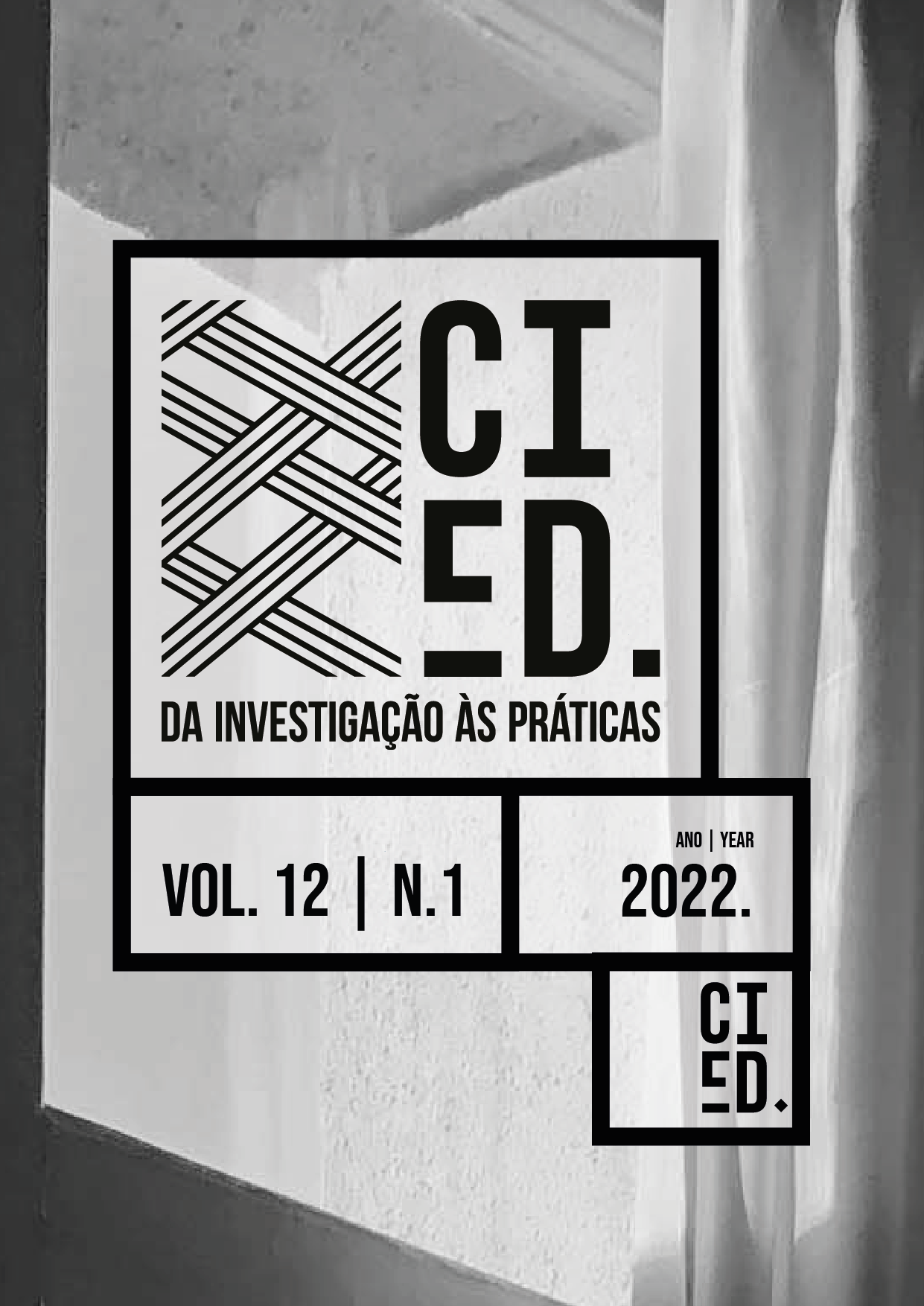Inclusive Travelers Books
talking about LGBT issues in kindergartens and primary schools
DOI:
https://doi.org/10.25757/invep.v12i1.304Abstract
This article presents the 'Inclusive Traveling Books' project, developed by SEIES - Society for Studies and Intervention in Social Engineering, in partnership with school libraries, in elementary schools in the municipality of Setúbal. The ‘Inclusive Traveling Books’ project aims to promote activities in the school context on non-discrimination based on sexual orientation and gender identity. The central focus of the project is the potential of children's literature to promote an inclusive society based on respect for diversity. Over the school years in which it was implemented, from 2015 to 2019, the 'Inclusive Traveling Books' project had as its main results, in the 5 school clusters involved, the development of activities to explore children's books with 20 pre-school classes and 156 classes from the 1st cycle, with a total of about 4,000 children. Within the scope of this project, the training workshop READING FOR EQUALITY was held, in partnership with the Higher School of Education of Setúbal, with the aim of meeting the training needs of the teachers involved. The activities carried out in the context of training and the impacts on the professional practice of the participants are presented and analyzed.
Downloads
References
Agency for Fundamental Rights (2010). Homophobia, Transphobia and Discrimination on grounds of Sexual Orientation and Gender Identity, 2010 update. Wien: European Union Agency for Fundamental Rights.
Agency for Fundamental Rights (2020). A long way to go for LGBTI equality. Luxembourg: Publications Office of the European Union.
Bennet, M. J. (1998). Intercultural communication: a current perspective. In M. J. Bennet (Ed.), Basic concepts of intercultural communication: selected readings (pp. 1-34). Yarmouth (ME): Intercultural Press.
Council of Europe (2011). Discrimination on grounds of sexual orientation and gender identity in Europe. Strasbourg: Council of Europe Publishing.
Despacho n.º 6173/2016, de 10 de maio. Diário da República, 2ª Série - n.º 90.
Direção-Geral da Educação & Direção-Geral da Saúde (2017). Referencial de Educação para Saúde. Lisboa: Ministério da Educação.
Ferreira, E. (2011). Questões de género e orientação sexual em espaço escolar. In J. M. Silva e A. C. P. da Silva (Eds.), Espaço, gênero e poder: conectando fronteiras (pp. 43-55). Ponta Grossa: Todapalavra Editora.
Governo de Portugal (2017). Estratégia Nacional de Educação para a Cidadania, consultado em 1 de dezembro de 2021. Disponível em http://www.dge.mec.pt/estrategia-nacional-de-educacao-para-cidadania
Lei n.º 60/2009, de 6 de agosto. Diário da República, 1ª Série - n.º 151.
Morgado, M. & Pires, M. N. (2010). Educação Intercultural e literatura Infantil. Vivemos num mundo sem esconderijos. Lisboa, Portugal: Colibri.
Portaria nº. 196-A/2010, de 9 de abril. Diário da República, 1ª Série, 1º suplemento - n.º 69.
Sánchez, E. & Vallejo, C. (2003). Educación en valores en una sociedad abierta y plural. Educación y Futuro, 8, 125-132
Tamagne, F. (2002). Genre et homosexualité: De l’influence des stéréotypes homophobes sur les représentations de l’homosexualité, Vingtième Siècle. Revue d’histoire, 3 (75), 61-73.
Tomé, M. C. & Bastos, G. (2012). Encontrar o Outro nos livros: A literatura juvenil ao serviço da construção de uma cidadania global. In S. Gonçalves e F. Sousa (Eds.), Escola e comunidade Laboratórios de cidadania global (pp. 85-94). Lisboa: Instituto de Educação da Universidade de Lisboa.
Downloads
Published
How to Cite
Issue
Section
License
Copyright (c) 2022 Eduarda Ferreira

This work is licensed under a Creative Commons Attribution 4.0 International License.
Articles published or submitted to Da Investigação às Práticas are licensed according to Creative Commons Attribution License (CC BY 4.0). Authors agree that:
Copyrights of all articles published are retained by authors with first publication copyright granted to the journal.
All articles are under the Creative Commons Attribution License recognizing the authorship of the publication and identifying that first publication took place in this journal.
Authors have the right to free distribute or make available in private or institutional pages the version published by Da Investigação às Práticas: Estudos de Natureza Educacional provided the original proper citation.
The journal only accepts articles not published previously (except in the form of an abstract or as part of academic thesis), that it is not under consideration for publication elsewhere. After published, the article cannot be published again partial or totally without the editorial board consent.





 e-ISSN: 2182-1372
e-ISSN: 2182-1372